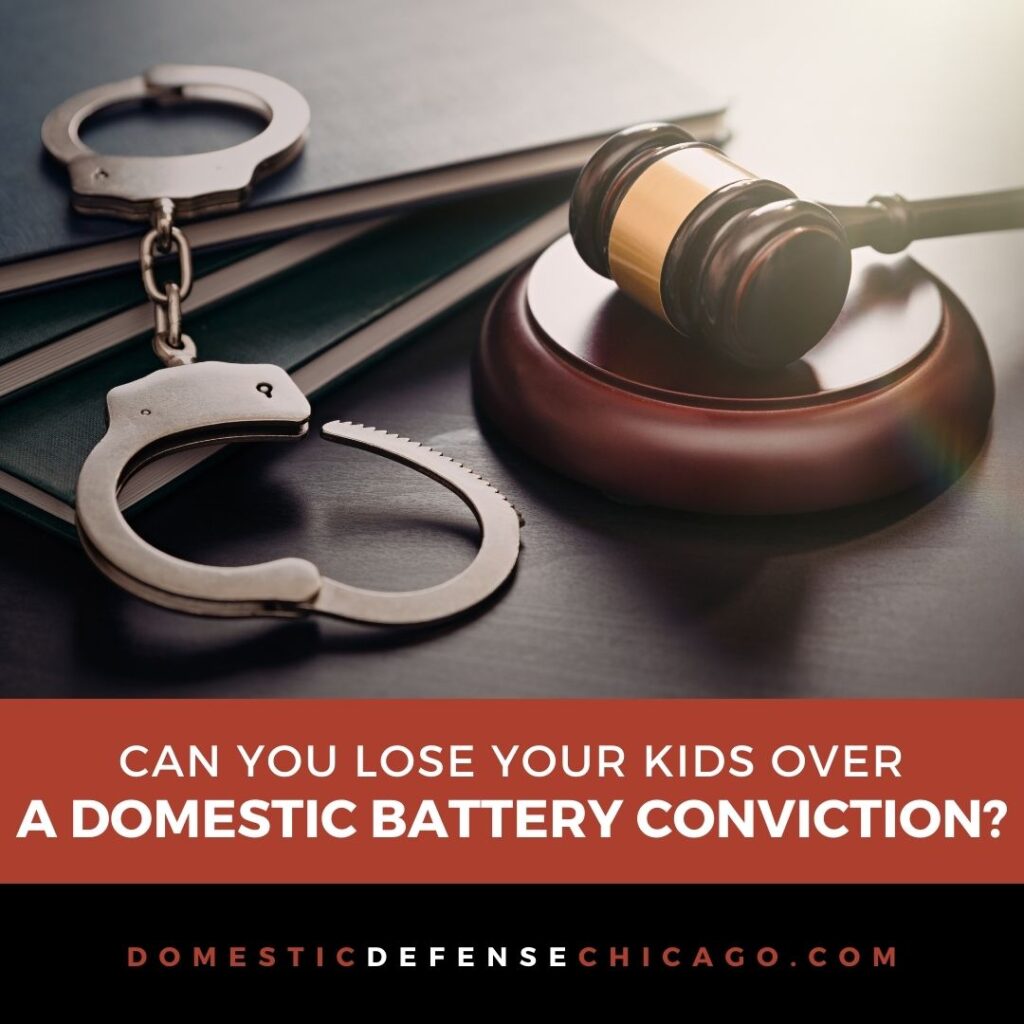Is it possible for the state of Illinois to take away your children based on a domestic battery conviction? This guide explains.
Can You Lose Your Kids Over a Domestic Battery Conviction?
It is possible for the state of Illinois to take away your kids based on a domestic battery conviction. In fact, it’s possible for the state to take away your children even if you are not the person convicted of domestic battery.
First things first: If the state of Illinois finds you guilty of committing domestic battery, which is the crime of causing bodily harm to any family or household member or making physical contact of an insulting or provoking nature with any family or household member, you could end up going to jail. This can trigger involvement with Child Protective Services, which could result in you losing your children.
Additionally, even if you are not the person convicted of domestic battery but you were responsible for having your children around the person who was convicted of domestic battery, it can trigger involvement with Child Protective Services.
Related: Can minors be charged with domestic battery in Illinois?
What to Do if You’re Accused of Domestic Battery and You’re Worried About Losing Your Kids
For most people, the best course of action when accused of domestic battery is to talk to an attorney. A domestic battery defense attorney will be able to evaluate your situation and give you the guidance you need. Remember, regardless of what the state accuses you of, you have the right to legal representation – and you should use it.
Related: Mandatory sentencing for aggravated domestic battery in Illinois
Do You Need to Talk to an Attorney About Domestic Battery Defense?
If you need to talk to a domestic battery defense attorney in Illinois, we’re here to help. Call us at 847-920-4540 now – we’ll be happy to give you a free consultation and talk to you about your options.







Leave A Comment
You must be logged in to post a comment.